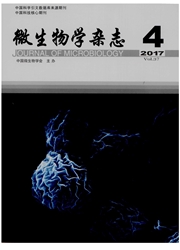

 中文摘要:
中文摘要:
生物自起源开始就与其他生物建立共生体系、营共生生活、共同发挥生理生态作用,并一直协同进化至今。微生物通过与其他生物的共生,在人类健康与发展、动物健康与生长发育、植物健康与生长发育、土壤健康与土壤肥力、环境与食品安全、生物多样性保持与生态平衡、生物的遗传与进化等方面发挥众多生理生态作用。共生微生物通过直接合成激素和抗生素等次生代谢物质、调控植物相关基因表达和调节其他生物的群落结构等作用机制来发挥其功能,在医药与健康、农林牧渔业可持续生产与发展、食品加工与储藏、生态环保与生物多样性保护等方面具有十分广阔的应用前景。
 英文摘要:
英文摘要:
Since the origin of living organisms, microorganisms have established symbiotic relationships with other organisms. These symbiotic systems are driven by long coevolutionary processes, in which the partners live together intimately, and play physiological and ecological effects cooperatively. Symbiotic microorganisms have significant effects on health, development and propagation of human, animals and plants. They also influence the soil health and fertility, the safety of environment and food, the maintenance of biodiversity and ecological balance, and the genetic and evolution of living organisms. Symbiotic microbes function through direct synthesizing secondary metabolites, such as hormones and antibiotics etc. , regulating related gene expression and changing community structures of other living organisms. The applications of these symbiotic micro-organisms have great prospects in medicine and health, animal husbandry, fishery, forestry, and sustainable agricultural production and development, food processing and storage, ecological environmental protection and biodiversity conservation.
 同期刊论文项目
同期刊论文项目
 同项目期刊论文
同项目期刊论文
 期刊信息
期刊信息
